A dramatic journey through the deterioration of coral reefs in Thailand and Indonesia
The photographer Giacomo d’Orlando has documented efforts to save this delicate marine ecosystem
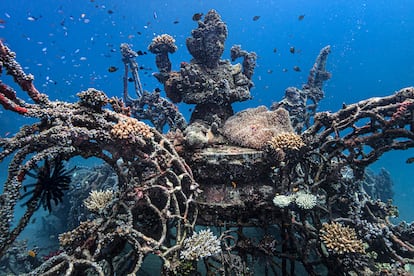
Around 70% of the planet’s surface is covered in water. That water feeds us, protects us. It is a source of economic, social and cultural wealth. Oceans and coasts are also vital allies in the fight against climate change, since coastal systems, such as mangroves, salt marshes and seagrass meadows absorb more carbon dioxide emissions than the same surface area of forests on land. However, pollution, overfishing and coastal development are deteriorating their health. Tropical coral reefs could disappear by the end of this century, and by 2050 there could be more plastic than fish in the oceans. Reports from the IPCC, the United Nations Intergovernmental Panel on Climate Change, point to Southeast Asia as one of the most vulnerable regions to climate change in the world, with Thailand and Indonesia among the most affected countries.
With the Symbiosis project, which the images in this photoessay belong to, I want to highlight the interconnection of the effects of climate change on the marine and coastal environment, such as the loss of biodiversity, rising sea levels, coastal erosion, acidification of the oceans and the rise in temperatures with their negative effects on the reefs. The title of this work also alludes to the close relationship between humans and the marine environment. I investigate how these phenomena directly affect the lives of coastal communities whose economic livelihood is linked to the sea. In order to generate constructive debate, without falling into feelings of surrender or despair, a central part of the project is dedicated to the solutions that both local communities and scientists are implementing to try to save the health of the marine ecosystem for future generations. It is intended to be an archive that documents the changes of our time and becomes an impetus for preservation.
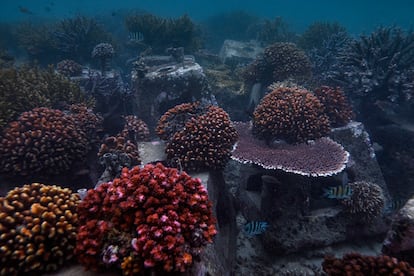
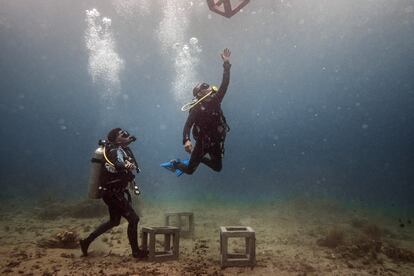

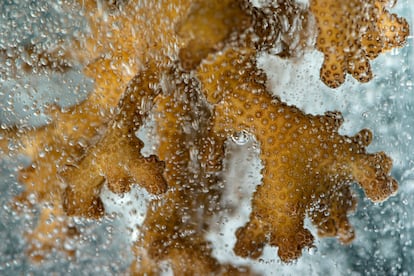
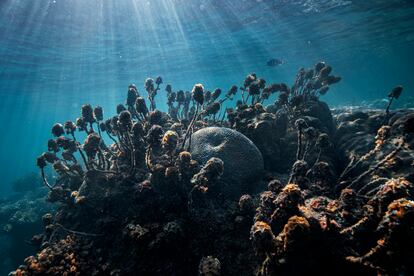
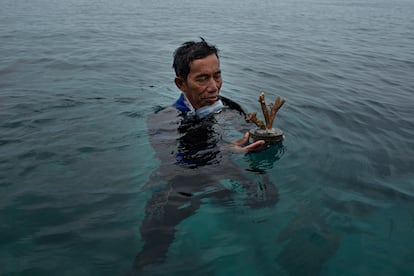

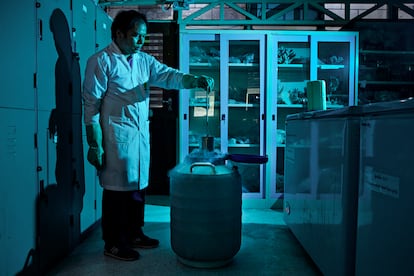

Sign up for our weekly newsletter to get more English-language news coverage from EL PAÍS USA Edition
Tu suscripción se está usando en otro dispositivo
¿Quieres añadir otro usuario a tu suscripción?
Si continúas leyendo en este dispositivo, no se podrá leer en el otro.
FlechaTu suscripción se está usando en otro dispositivo y solo puedes acceder a EL PAÍS desde un dispositivo a la vez.
Si quieres compartir tu cuenta, cambia tu suscripción a la modalidad Premium, así podrás añadir otro usuario. Cada uno accederá con su propia cuenta de email, lo que os permitirá personalizar vuestra experiencia en EL PAÍS.
¿Tienes una suscripción de empresa? Accede aquí para contratar más cuentas.
En el caso de no saber quién está usando tu cuenta, te recomendamos cambiar tu contraseña aquí.
Si decides continuar compartiendo tu cuenta, este mensaje se mostrará en tu dispositivo y en el de la otra persona que está usando tu cuenta de forma indefinida, afectando a tu experiencia de lectura. Puedes consultar aquí los términos y condiciones de la suscripción digital.








































